I recently visited my local zoo‚ and it sparked a thought-provoking internal debate about the ethics of keeping animals in captivity. While I enjoyed observing the animals‚ I couldnt shake the feeling that something felt inherently wrong about their confinement. This experience led me to research and delve deeper into the complexities of animal captivity.
The Case for Captivity
Advocates for zoos and aquariums often highlight the crucial role these institutions play in conservation efforts. I learned that many zoos participate in breeding programs for endangered species‚ aiming to increase population numbers and potentially reintroduce captive-bred animals into the wild. Furthermore‚ zoos provide educational opportunities for the public‚ fostering appreciation and understanding of the animal kingdom. Seeing these creatures up close can be a powerful experience‚ potentially inspiring conservation action.
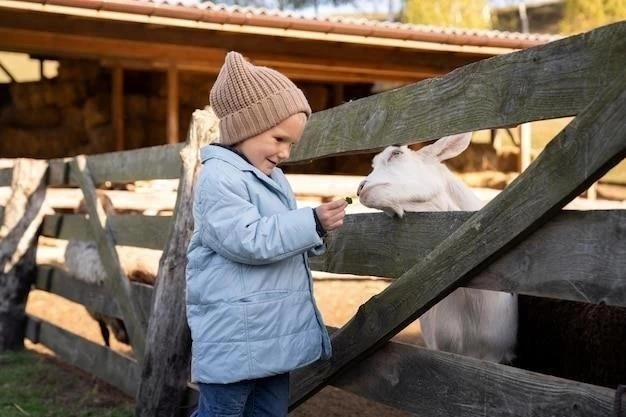
The Ethical Dilemma
However‚ the ethical concerns surrounding animal captivity cannot be ignored. Despite the best intentions of some facilities‚ confining animals to enclosures‚ even spacious ones‚ inherently restricts their natural behaviors. Ive read numerous accounts of animals in captivity exhibiting signs of stress‚ boredom‚ and even depression. The argument that zoos and aquariums prioritize the well-being of their animals is often countered by reports of inadequate living conditions‚ lack of proper veterinary care‚ and the separation of social animals from their natural groups.
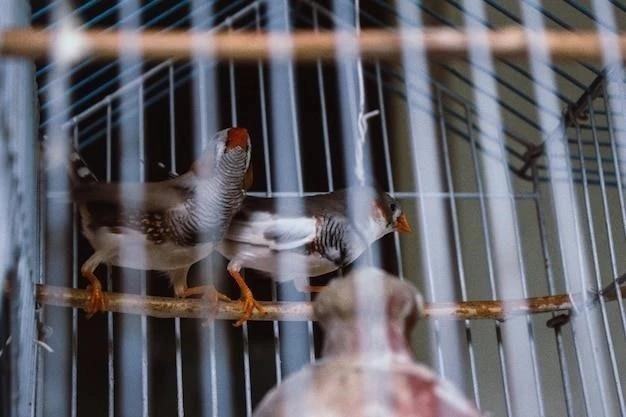
The Conservation Debate
While some zoos undoubtedly contribute to conservation‚ the effectiveness of captive breeding programs is a subject of debate. Critics argue that the number of animals successfully reintroduced into the wild remains disappointingly low. Furthermore‚ the focus on captive breeding may divert resources and attention away from addressing the root causes of species decline‚ such as habitat destruction and poaching.
My Personal Reflection
Navigating the complexities of animal captivity is a deeply personal journey. While I appreciate the potential for education and conservation‚ I find it difficult to reconcile these benefits with the ethical concerns. The sight of a majestic lion pacing back and forth in its enclosure‚ a mere shadow of its wild counterpart‚ is a stark reminder of the sacrifices animals make for our entertainment and education. Ultimately‚ I believe we must prioritize the protection of animals in their natural habitats‚ working towards a future where zoos and aquariums evolve into sanctuaries for rescued animals or transition entirely towards educational exhibits that dont involve keeping live animals in confinement.
My research and reflection led me to a turning point. I decided to visit a different kind of animal sanctuary‚ one dedicated to rescuing and rehabilitating animals who had suffered in the exotic pet trade or been surrendered from inadequate zoo conditions. This sanctuary‚ nestled amidst rolling hills about a two-hour drive from my home‚ emphasized providing spacious‚ naturalistic habitats and prioritizing the animals physical and psychological well-being.
Driving through the sanctuary gates‚ I felt a palpable shift in atmosphere. Gone were the sterile enclosures and echoing concrete paths. Instead‚ I encountered sprawling meadows dotted with trees‚ large ponds shimmering in the sunlight‚ and spacious‚ heavily-vegetated enclosures designed to mimic the animals natural environments.
I spent the day speaking with the sanctuary staff‚ dedicated individuals with a deep passion for animal welfare. They shared stories of the rescued animals‚ tales of resilience and recovery that both warmed my heart and broke it at the same time. I learned about Bruno‚ a Bengal tiger who had spent years pacing in a cramped cage at a roadside zoo‚ his spirit seemingly broken. Now‚ at the sanctuary‚ Bruno roamed his expansive habitat with a newfound confidence‚ his roar echoing through the trees a testament to his rediscovered strength.
I watched as Maya‚ an African grey parrot rescued from a neglectful home‚ soared through the air in the sanctuarys large aviary‚ her joyous calls a stark contrast to the silent‚ withdrawn bird she had once been. And I felt a lump in my throat as I observed two grizzly bear cubs‚ orphaned by the fur trade‚ playfully wrestling in their spacious enclosure‚ their carefree antics a reminder of the innocence and joy that all animals deserve.
My visit to the sanctuary solidified my evolving perspective on animal captivity. While I still believe that zoos and aquariums have the potential to play a positive role in conservation and education‚ I now understand that this potential can only be realized through a fundamental shift in approach. We must move away from the model of keeping animals confined for our entertainment and embrace a future where the well-being of individual animals is paramount. Sanctuaries‚ with their focus on rescue‚ rehabilitation‚ and providing spacious‚ naturalistic habitats‚ offer a glimpse of what this future could look like.
As the sun began to set‚ casting long shadows across the sanctuary grounds‚ I felt a profound sense of peace settle over me. The experience had been both eye-opening and deeply moving. I realized that my journey of understanding animal captivity wasnt about passing judgment or taking sides; it was about listening‚ learning‚ and advocating for a better future for all living creatures.
Leaving the sanctuary‚ I carried with me a renewed sense of purpose. I resolved to use my voice to raise awareness about the plight of animals in captivity and to support organizations like the sanctuary that prioritize their well-being. I also committed to being a more mindful consumer‚ avoiding attractions that exploit animals for entertainment and choosing to support businesses and initiatives that align with my values.
Driving home‚ I couldnt help but reflect on the words of the sanctuary director‚ a woman named Sarah‚ who had dedicated her life to providing a haven for animals in need. “Every animal deserves to live a life free from fear and suffering‚” she had said‚ her voice filled with quiet conviction. “Its our responsibility to create a world where their freedom is valued and protected.”
Her words stayed with me‚ a powerful reminder that the choices we make‚ both big and small‚ have the power to shape the world around us. I realized that my journey of understanding animal captivity was far from over; it was an ongoing process of learning‚ reflecting‚ and advocating for a more compassionate and just world for all.
Sarahs words resonated deeply‚ prompting me to re-examine my own consumption habits. Id always considered myself an animal lover‚ but how much had I unknowingly contributed to their exploitation? That night‚ I vowed to be more conscious. I started with my entertainment choices‚ swearing off circuses and marine parks that profited from captive animal performances. It felt surprisingly good‚ a small act of defiance against a system I no longer wanted to support.
My growing awareness led me to volunteer at a local animal shelter. It wasnt a sanctuary‚ but it was a start. I walked dogs whod spent too long in kennels‚ socialized shy cats‚ and cleaned cages. It wasnt glamorous‚ but I found a different kind of fulfillment in their grateful eyes and wagging tails; The experience brought me face-to-face with the reality of abandoned and neglected animals‚ a stark reminder that captivity wasnt limited to exotic creatures in faraway zoos.
One rainy afternoon at the shelter‚ I met a scruffy terrier mix named Oliver. He was timid‚ his tail tucked low‚ his eyes reflecting a history I could only imagine. As I knelt beside his kennel‚ he hesitantly inched forward‚ offering a trembling paw. In that instant‚ I knew I had to give him a home.
Olivers arrival turned my world upside down‚ in the best way possible. He filled my days with muddy paw prints‚ playful nips‚ and a love so pure it brought tears to my eyes. He became my constant companion on hikes‚ his joy at feeling the wind in his fur palpable. Through him‚ I learned the true meaning of freedom—not just the absence of physical barriers‚ but the freedom to express ones true nature‚ to feel safe‚ loved‚ and respected.
Olivers presence also deepened my commitment to advocating for animals still living in confinement. I started small‚ engaging in conversations with friends and family‚ sharing what Id learned about the realities of animal captivity. I wrote letters to my elected officials‚ urging them to support stronger animal welfare legislation. I donated to organizations working to protect wildlife habitats and combat the illegal wildlife trade.
The journey hasnt always been easy. Ive faced resistance‚ skepticism‚ and even anger from those who hold differing views. But Ive also encountered countless others who share my concerns‚ individuals who are also striving to make a difference. Ive learned that change‚ however incremental‚ is possible when we raise our voices‚ educate ourselves and others‚ and refuse to turn away from the suffering of those who cannot speak for themselves.
My journey is far from over‚ but its a path Im committed to walking‚ one paw print at a time‚ with Oliver by my side‚ a constant reminder of the love‚ loyalty‚ and freedom that every living creature deserves.

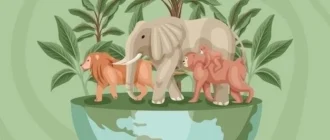

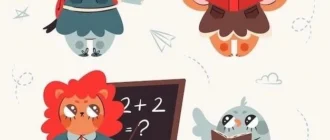
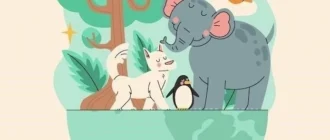
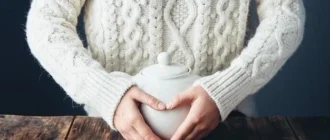
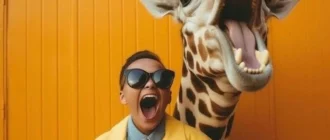
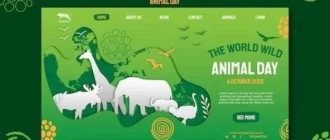

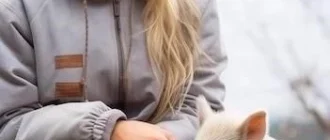
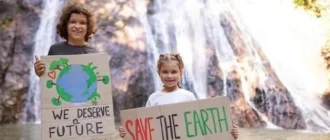
I struggle with the idea of animals being confined for human entertainment. It feels inherently wrong.
I used to love going to the zoo as a child, but as I\
I support zoos that are actively involved in conservation efforts and provide high standards of care for their animals.
The conditions in which animals are kept vary greatly from zoo to zoo. We need stricter regulations and oversight to ensure that all captive animals are treated humanely.
I recently visited a sanctuary for rescued zoo animals, and it was eye-opening to see the difference in their behavior and overall well-being compared to animals still in zoos.
I think zoos should focus on educating the public about the plight of animals in the wild and inspiring action to protect them.
I think it\
The conservation argument is a compelling one. Zoos do play a vital role in protecting endangered species, and I\
I believe that education is key to changing attitudes towards animal captivity. We need to teach future generations to respect and appreciate animals in their natural environments.
I believe that we have a moral obligation to protect endangered species, and zoos can play a role in that effort. However, we need to ensure that captivity is a last resort, not a default option.
I support the development of more sanctuaries and reserves where animals can live in natural habitats while still receiving protection.
I believe that we can learn a lot from studying animals in their natural habitats. We need to invest in more non-invasive research methods.
It breaks my heart to think of animals suffering from stress and boredom in captivity. We need to find a better way to protect them while respecting their natural needs.
I believe that zoos have a responsibility to provide enriching environments for their animals, with ample space to roam and opportunities for natural behaviors.
Education is crucial, and zoos can play a role in teaching people about the importance of conservation. However, we need to ensure that the animals\
I believe that zoos should prioritize the rescue and rehabilitation of animals over breeding programs. We need to focus on returning animals to the wild whenever possible.
The debate over animal captivity is a complex one, and there are valid arguments on both sides. Ultimately, we need to find a balance between conservation, education, and animal welfare.
I believe that zoos can play a positive role in conservation, but only if they prioritize the well-being of their animals above all else.
I believe that zoos should be held to higher standards of animal welfare. We need to ensure that all captive animals are living in humane and enriching environments.
I think zoos should focus on showcasing native species and educating the public about local conservation efforts.